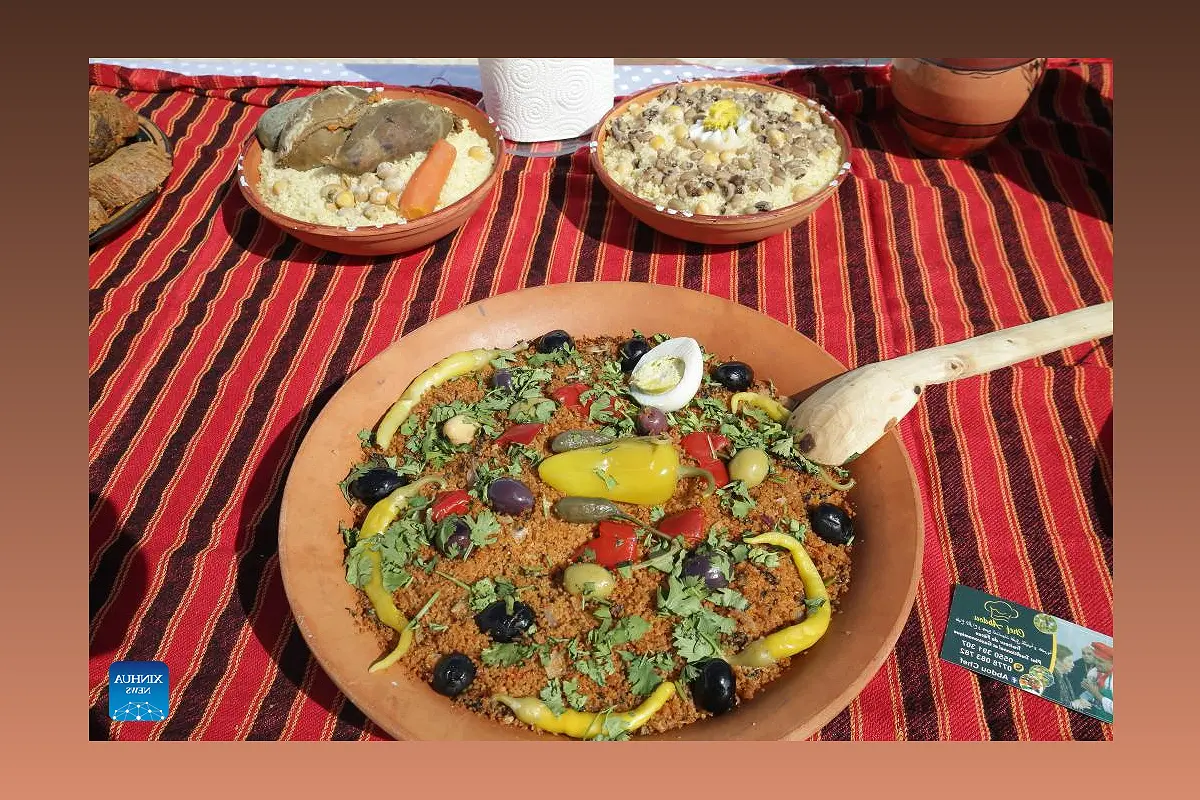In the vibrant world of culinary heritage, few dishes can rival the global appeal and cultural significance of couscous. This traditional North African delicacy has captivated taste buds around the world, earning its place on the prestigious UNESCO Intangible Cultural Heritage list. Join us on a journey to uncover the fascinating history, diverse practices, and mouthwatering flavors that make couscous a true culinary gem.
The Origins of Couscous
Uncover the ancient roots and cultural significance of couscous.
Couscous, a beloved dish that has stood the test of time, traces its origins back to ancient Berber tribes in North Africa. The exact origins of couscous are shrouded in mystery, but it is believed to have been consumed for centuries, serving as a staple food for nomadic communities.
As the Berber tribes spread across the region, they brought with them their culinary traditions, including the art of making couscous. This versatile dish quickly gained popularity and became an integral part of the cultural fabric of North Africa.
Today, couscous continues to be a symbol of unity and shared heritage, transcending borders and captivating the palates of people from all walks of life.
The Art of Making Couscous
Delve into the intricate process and techniques behind the creation of couscous.
The art of making couscous is a labor-intensive process that requires skill, patience, and a deep understanding of the traditional methods. The key ingredient is semolina, a type of wheat flour that is meticulously hand-rolled and shaped into tiny granules.
The rolling process is a true art form, with experienced couscous makers effortlessly shaping the semolina into perfectly round grains. This delicate process ensures that each grain of couscous is uniform in size and texture, resulting in a light and fluffy dish.
While modern techniques have streamlined the process, many communities still uphold the traditional methods, passing down the knowledge from one generation to the next. The art of making couscous is not just about the final product; it is a celebration of cultural heritage and the preservation of ancestral traditions.
Couscous Around the World
Discover how couscous has transcended borders and gained popularity worldwide.
What started as a regional dish in North Africa has now become a global sensation, captivating the taste buds of people from all corners of the world. Couscous has seamlessly integrated into various culinary traditions, adapting to local flavors and ingredients.
In Europe, couscous has become a beloved alternative to rice or pasta, featuring prominently in Mediterranean and Middle Eastern cuisines. In the Americas, it has found its way onto menus in trendy restaurants, offering a healthy and versatile option for food enthusiasts.
The rise in popularity of couscous can be attributed to its simplicity, versatility, and health benefits. It is a blank canvas that can be paired with a wide range of ingredients, from vegetables and meats to aromatic spices and herbs.
As the world becomes more interconnected, the global appreciation for couscous continues to grow, showcasing the power of food to bridge cultural divides and foster a sense of unity.
Couscous: A Culinary Tradition
Explore the cultural significance and rituals associated with couscous.
Couscous is more than just a dish; it is a symbol of community, togetherness, and celebration. In many North African countries, the preparation and sharing of couscous is steeped in tradition and rituals that bring families and communities together.
From the communal gathering around a large steaming couscous platter to the intricate hand gestures used to mix and fluff the grains, every step of the couscous-making process is infused with cultural significance.
Special occasions such as weddings, religious holidays, and family gatherings often feature couscous as the centerpiece of the feast, symbolizing abundance, hospitality, and unity.
Through the centuries, couscous has remained a beloved culinary tradition, passed down from one generation to the next, preserving cultural heritage and fostering a sense of identity.
Conclusion
Couscous, with its rich history and cultural significance, has rightfully earned its place on the UNESCO Intangible Cultural Heritage list. This beloved dish has transcended borders, captivating taste buds around the world and bringing people together through the shared experience of enjoying a delicious meal.
From its ancient origins in North Africa to its global popularity today, couscous serves as a symbol of unity, tradition, and the power of food to connect us all. Let us continue to celebrate and preserve the intangible cultural heritage of couscous, ensuring that future generations can savor its flavors and appreciate its cultural significance.

